- Austausch & Vernetzung
- Wissen & Lernen
- Advocacy
- Unsere Themen
Mit dem Coronavirus verbreitet sich nicht nur ein Erreger, sondern ein sich wiederholendes Muster, wie wir Menschen damit umgehen. Das Muster fomiert die Öffentlichkeit, politisches Handeln und legt Verdrängungsmechanismen im Umgang mit gesundheitlichen Herausforderungen offen.
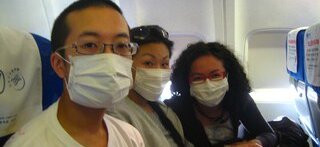
Sars, Schweinegrippe oder jetzt eben der Coronavirus – mit zuverlässiger Regelmässigkeit erregen krankmachende Viren die hiesige Öffentlichkeit. Das spielt sich meist nach einem vergleichbaren Muster ab. Zunächst taucht eine Übertragung an einem für uns dunklen Ort dieser Welt auf – sei es in einem tropischen Regenwald (Ebola) oder auf einem unkontrollierbaren Fleischmarkt, auf welchem die lokale Bevölkerung uns nicht nachvollziehbare Konsumgewohnheiten befriedigen. Der Ort wird als Unort jenseits der Zivilisation beschrieben, schlicht weil er einfach nicht Teil unserer Wahrnehmung gewesen ist. Wuhan, wo die erste Übertragung von Tier auf Mensch stattgefunden hat, ist eine chinesische 11-Millionen-Stadt, die aufgrund ihrer Wirtschaftskraft für sich alleine unter den weltweit 50 grössten Volkswirtschaften liegen würde. (Quelle: Wikipedia)
Was dort mit einer überschaubaren Anzahl von Fällen begonnen hat, wandert in der medialen Berichterstattung bei uns aus dem Ressort Vermischtes auf die Frontseite und führt innerhalb von rund zwei Wochen zu Hamsterkäufen von Schutzmasken in der Zürcher Bahnhofstrasse. Einmal mehr führt die mediale Ignoranz von den alltäglichen globalen Gesundheitsthemen zu Lifeberichterstattung vor einem Zürcherspital, weil dort zwei Personen liegen, welche sich unwohl fühlen.
Ein weiteres Element des Wahrnehmungsmusters im Umgang mit solchen Erregern lässt sich immer wieder festellen: Die Gefahr der schnellen Verbreitung erklären Expert*innen mit der Globalisierung, weshalb denn auch nur konsequent ist, dass der Flugverkehr in die betroffene Region eingeschränkt wird – eine aus gesundheitlicher Sicht durchaus positive Massnahme, allerdings eher aufgrund ihrer ökologischen Effekte. Das mit der Globalisierung mag zwar stimmen, doch interessanterweise werden dann die Fallzahlen in den Medien immer für die einzelnen Ländern ausgewiesen. Was dann zur Folge hat, dass wir in der Schweiz erleichtert aufatmen, dass wir den Virus noch nicht haben, im Gegensatz zu den Deutschen und den Franzosen. Und so fühlen wir uns geschützt innerhalb unserer Grenzen – als ob die irgendwas gegen das Virus ausrichten könnten.
Diese Dialektik in der Wahrnehmung, dass da eine globale Erkrankung um sich greiffe, dass wir aber innerhalb unserer Mauern sicher seien, ist wohl ein tiefverankertes Muster, das unter anderem auf die Kultur der mitteralterlichen Stadt zurückgeht. Wie auch immer: Sie formiert auch politisches Handeln: globale Gesundheit wird in der Konsequenz als ein nationales Sicherheitsproblem und nicht als eines der internationalen Solidarität abgehandelt. Immer wieder wurden im Zusammenhang mit Epidemien mehr Grenzschutz und Abschottung gefordert, auch wenn es gesundheitspolitischer Schwachsinn ist.
Das Muster im Umgang mit Viren wie dem Coronavirus zeigen aber vor allem auch eines: Die alltägliche Ignoranz im Umgang mit globalen Gesundheitsthemen. Die gesundheitlichen Herausforderungen liegen weltweit in ganz anderen Bereichen: Täglich sterben rund 800 Mütter aufgrund vermeidbarer Komplikationen bei der Geburt. In der Schweiz sterben jährlich 9500 Menschen an den Folgen des Tabakkonsums und alle zwei Wochen wird in der Schweiz ein Frau umgebracht.
Martin Leschhorn Strebel
Netzwerk Medicus Mundi Schweiz
E-Mail
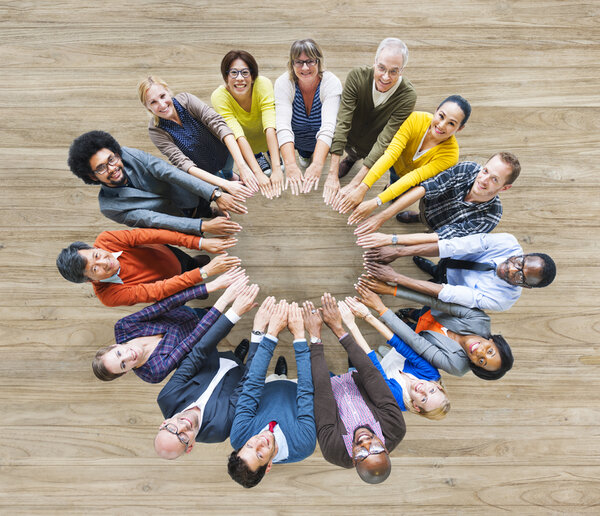
Medicus Mundi Switzerland The afterwork takes the form of a mix between a world café and an associative village. Faced with the complexity of health issues, global solutions must be found, and collaboration is a lever for developing these solutions. - Synergy is a response to the new health issues. - Participate in the implementation of SDG 17 for SDG 3. Free entrance. Language : English and French. Contact : Andréa Rajman, Medicus Mundi Suisse, arajman@medicusmundi.ch; Driss Agoune, Cité de la Solidarité Internationale, agoune@cite-solidarite.fr (Photo: © Cité de la Solidarité, France)
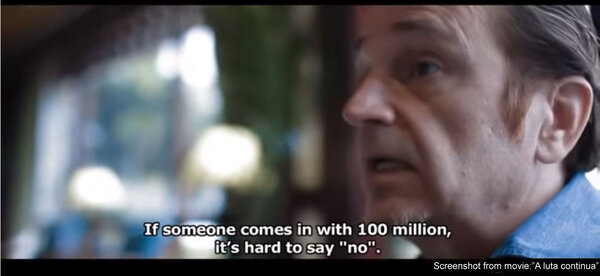
Medicus Mundi International (MMI) As part of the Kampala workshop that took place in November 2019, an initial group of civil society members from 6 different countries came together to creatively explore what a new narrative could look like – one that tells the truth about poverty and poor health, and that builds solidarity and social justice. They also developed an action plan on how to start engaging others in this work, formalising themselves into an open group called the “Track Changing Initiative”. In our webinar on 13 February, we will discuss the activities undertaken by this group at the Kampala Initiative workshop, and welcome comments, thoughts and feedback on some of the alternative words, phrases and definitions that were developed. Register now: https://zoom.us/webinar/register/WN_IR2gSl8xT3qeoED4zmmKFg
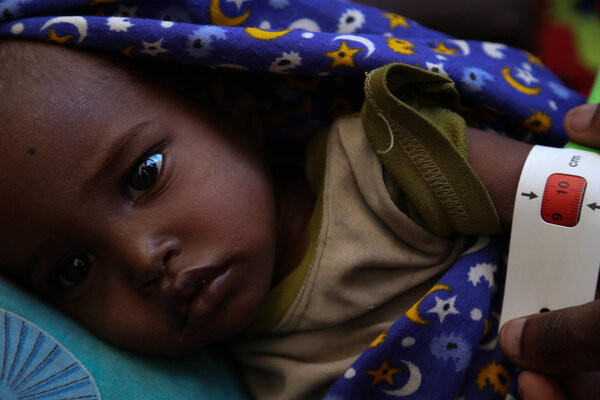
World Health Organisation (WHO) You are invited to the launch of a major new report on child health and well-being, entitled A future for the world’s children? A WHO-UNICEF-Lancet Commission. The report details critical, emerging risks to child health; proposes novel solutions; and calls for urgent action to achieve measurable results. Progress on indicators of child health and well-being is currently stalled across the SDGs, but can be jump-started with the right focus, leadership, involvement, policies and investment. Registration for this event is now open - Deadline: Feb 10, 2020 (Photo: UNICEF Ethiopia/flickr, CC BY-NC-ND 2.0)

Massive Open Online Course (MOOC) How can we address societal challenges with research? Investigate the principles, processes, and uses of transdisciplinarity. - In today’s world, we face many complex societal challenges. Research projects addressing these challenges often involve actors and stakeholders from different fields and disciplines bringing together their own perspectives or knowledge on a topic. Accordingly, collaborative transdisciplinary approaches are crucial for the success of a project. Students, researchers and practitioners from all backgrounds should have the opportunity to learn how to do research that helps to overcome societal challenges. - The inscription for this free online course is open now. The course starts on 30th March 2020 and consists of six weeks totalling 30 hours’ workload for learners. Each week consists of a mix of formats, including videos, articles, discussions and quizzes. Students from all departments, professionals, and teachers, are the targeted participants. All material, except the interactive parts, will be available year-round and can be integrated in lectures, courses, and self-studies.
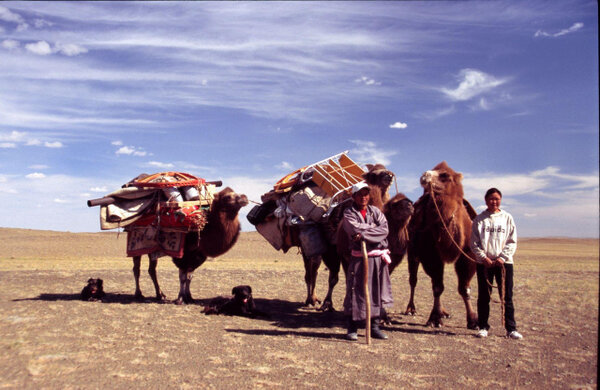
Swiss TPH The course provides an overview of health-related issues expatriates and their families may face during their stay abroad. The goal of the course is to equip the participants with all necessary background information on preventive measures to be considered before leaving the home country and to provide them with the basic knowledge on how to deal with the most relevant and frequent health issues possibly arising during their stay abroad. Contact: Rachel Gutknecht (+ 41 61 284 83 61)
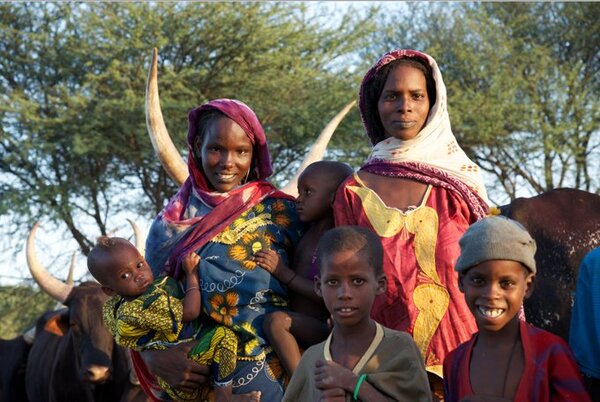
Swiss TPH / SolidarMed This webinar is part of the webinar series “From Evidence to Policy” that brings together researchers to share their on-going work as part of the Swiss Programme for Research on Global Issues for Development on public health (r4d), and engage with the international research and policy community around issues that are pertinent in public and global health research. With a strong policy focus, this webinar aims at highlighting lessons learnt from community-based HIV testing and same-day ART initiation in Lesotho. Who should attend? The webinar is intended for researchers, policymakers and other stakeholders interested in the area of community-based HIV testing and care. Participation/log-in: The webinar is free to attend. Please join the webinar by clicking on the following zoom link: https://swisstph.zoom.us/j/277838206
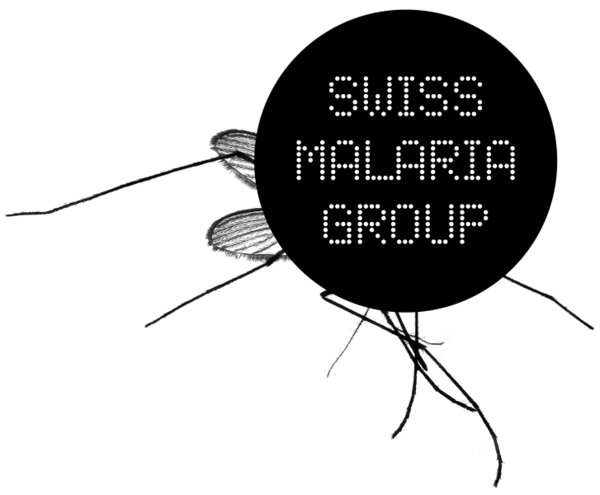
Swiss Malaria Group (SMG) Join us to learn about multistakeholder leadership from advocacy to access using the example of the Swiss Malaria Group. A strong response to global health problems today, must include the two following components: committed multistakeholder leadership (political and organisational) and access. We will discuss how to make multistakeholder organisations work by taking as an example the Swiss success story of public, private, academic and civil societies joint engagement to end malaria. Short inspiring inputs will be followed by a networking aperitif where we will celebrate the signing of the Memorandum of Understanding (MoU) between the Global Fund to Fight Aids, TB and Malaria and the Swiss Malaria Group.
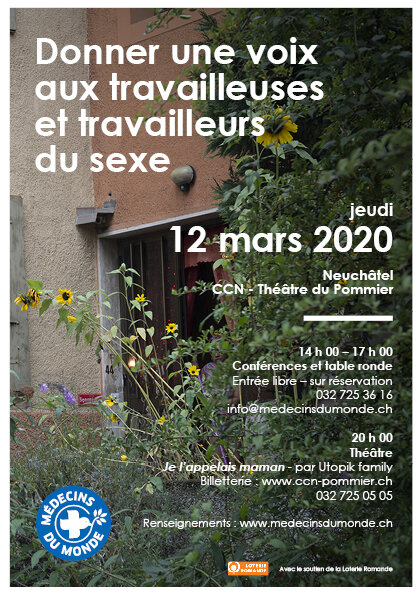
Médecins du Monde Suisse (MdM) 14h00 conférences; 15h30 table ronde; 20h00 théâtre. Entré Libre - INSCRIPTION et renseignement : info@medecinsdumonde.ch; Tel: 032 725 36 16
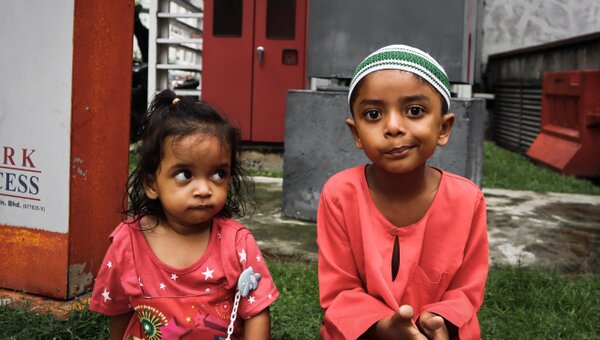
MMS The year 2020 will mark several important milestones for gender equality and sustainable development, including the 25th anniversary of the Beijing Declaration and Platform for Action, one of the most comprehensive blueprints for women’s rights worldwide. Gender inequality and gender norms impede progress on the global goal to achieve health for all. Today, not a single country can claim to have achieved gender equality. Multiple obstacles remain unchanged in law and in culture. This year’s MMS annual conference will seek answers on how we can realise gender equality and whether gender transformative approaches are really the answer it. (Photo: by Andre Halim on Unsplash)

IAMANEH Suisse Magdalena Urrejola, Directrice de IAMANEH, et Anne Barrat, Responsable du bureau de Genève, ont plaisir de vous inviter à l’inauguration du bureau de IAMANEH Suisse à Genève, rue de Cornavin 11. En présence de Son Excellence Mamadou Henri Konaté, Ambassadeur Représentant permanent de la République du Mali auprès de l'Office des Nations Unies et des autres Organisations internationales à Genève et à Vienne, et de Fatou Diatta, “Sister Fa” qui chantera pour l’occasion. La cérémonie aura lieu le 6 février 2020 à 18h, dans le grand salon du Domaine de La Pastorale 106, route de Ferney - 1202 Genève. Elle sera suivie d’un cocktail. RSVP avant le 28 Janvier 2020 à l’adresse suivante : abarrat@iamaneh.ch ou par téléphone : 078 491 6081

UN Women In 2020, the global community will mark the twenty-fifth anniversary of the Fourth World Conference on Women and adoption of the Beijing Declaration and Platform for Action (1995). A five-year milestone will be reached towards achieving the Sustainable Development Goals of the 2030 Agenda for Sustainable Development. 2020 is therefore a pivotal year for the accelerated realization of gender equality and the empowerment of all women and girls, everywhere. The sixty-fourth session of the Commission on the Status of Women is planned to take place at the United Nations Headquarters in New York from 9 to 20 March 2020. Representatives of Member States, UN entities, and ECOSOC-accredited non-governmental organizations (NGOs) from all regions of the world are invited to attend the session. Further important dates: The Generation Equality Forum will be kicked-off in Mexico City, Mexico, on 7-8 May 2020 and culminate in Paris, France, on 7-10 July 2020.
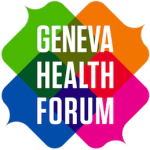
Geneva Health Forum Health systems are facing serious dynamic challenges. Resources are increasingly limited in a rapidly changing world, where the nature of health needs are equally changeable. However, technological progress in the digital age and the emergence of new health actors expand our array of potential solutions to these unprecedented challenges. (Photo: GHF)
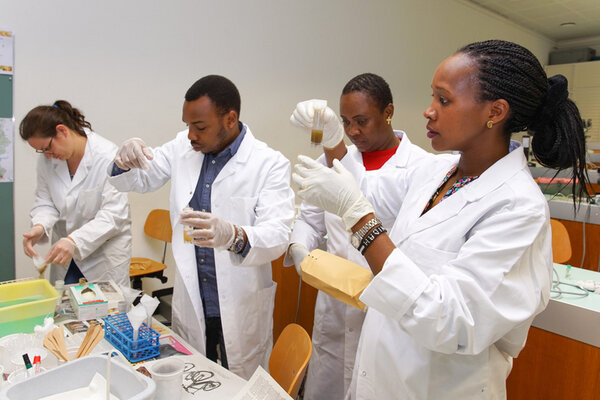
Swiss TPH The 14-week Health Care and Management (HCM) diploma course provides international participants with the core competencies to understand and react to health challenges (e.g. health care, child health, etc. ) at a world-leading institute in global and public health. Participants acquire a range of skills and knowledge needed to work as a member of a health management team, particularly in low- and middle-income societies. With a focus on practical application and interactive training, multinational participants benefit from engaging with experts from various fields and with a diverse student body to advance their position in the health sector. HCM also serves as the core course for the tropEd network, the European Network for Education in International Health, and is mandatory for those who wish to pursue a Master in International Health (MIH).
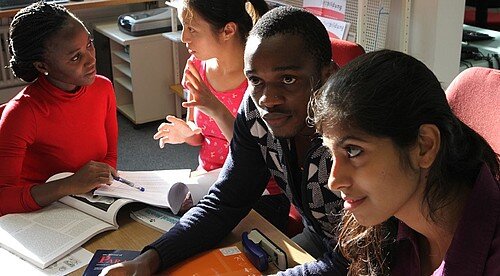
Swiss TPH Strong managers and leaders are needed to ensure sustainable and equitable health systems that can respond to current and future health needs. The MBA in International Health Management programme seeks to create a new generation of managers and leaders, building on their various skills sets and personalities in order to equip them for independent meso- and macro-level leadership positions by maintaining a global perspective and interdisciplinary approach to health. The MBA in International Health Management is taught in a blended-learning format (on-campus 1/4, distance based 3/4). More information about the course structure you find here (https://issuu.com/communications.swisstph/docs/tph_graifk2-mba-ihm_1_?fr=sY2U3NTI3MDM3)
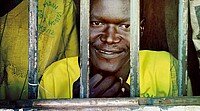
Swiss TPH Swiss TPH offers this one-week course in collaboration with the International Committee of the Red Cross (ICRC) to give health professionals the information, methods and tools needed to analyse and address health and human rights issues affecting people in detention. The course covers topics such as detainee health, health systems, control of communicable and non-communicable diseases and ethical issues that arise when providing healthcare services to populations in detention. It also provides an overview of the main legal instruments, professional codes and declarations designed to protect the rights of prisoners, detainees and patients. This course is open to participants working in the field of health in detention, nationally or internationally, and uses a multi-disciplinary approach to bring together academics and clinical, public health and legal experts.
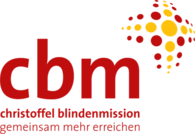
Anstellung per sofort oder nach Vereinbarung
Sie übernehmen die Verantwortung für die Gestaltung und Umsetzung der Entwicklungsprogramme der CBM Schweiz mit Schwerpunkt südliches Afrika. Wir bieten: Eine interessante Tätigkeit in der behinderten-inklusiven internationalen Zusammenarbeit, zeitgemässe Anstellungsbedingungen, Mitarbeit in einem motivierten Team, das sich zusammen mit Menschen mit Behinderungen für die Umsetzung von Behindertenrechten in der internationalen Zusammenarbeit engagiert. Arbeitsort: Thalwil. Wir freuen uns auf Ihre Bewerbung per E-Mail an: mark.schmid@cbmswiss.ch
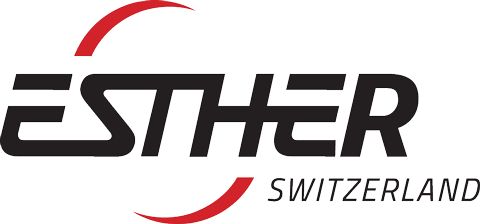
Deadline for submission of consultancy proposal is February 25th, 2020, midnight CET.
In order to further exploit the potential of ESTHER Switzerland as well as to make ESTHER known to potential funders who may not be familiar with ESTHER yet, we are looking for a Communication Consultant. The objective of the communication consultancy will be to position ESTHER in the Swiss Health Development landscape, to make it more widely known in Switzerland and potential partner countries and to attract new partners as well as funders. Consultancy proposals should be sent in electronic format to Dörte Petit, ESTHER Switzerland Project Manager. Email: doerte.petit@ispm.unibe.ch

Deadline for submission of consultancy proposal is February 25th, 2020, midnight CET
In order to secure the continuity of ESTHER Switzerland and to broaden the funding sources, we are looking for a Fundraising Consultant. The objective of the fundraising consultancy will be torender ESTHER Switzerland more sustainable and less dependent on one funding sourceby diversifying funding sources. Additional funding to complement SDC funding at least for 2022 to 2024 but ideally beyond should be secured. This should be done through the development of an effective fundraising strategy including, strategic and creative search for potential funders and donors, tailored messages and corresponding marketing material. Consultancy proposals should be sent in electronic format to Dörte Petit, ESTHER Switzerland Project: doerte.petit@ispm.unibe.ch
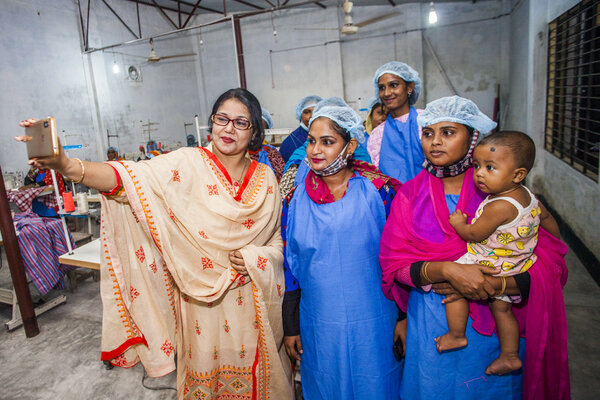
Erster umfassender Fünfjahresbericht in der SDG-Ära über die Fortschritte bei der Gesundheit von Frauen, Kindern und Jugendlichen
Es gibt kaum Hinweise darauf, dass das SDG-Mantra, niemanden zurückzulassen, zu einer raschen Verringerung der Ungleichheiten innerhalb der Länder geführt hat. - Dies ist eine der Aussagen, die gerade in einer neuen Sammlung von Artikeln vom British Medical Journal (bmj) veröffentlicht wurde. Zu Beginn des letzten Jahrzehnts zur Erreichung der Ziele für nachhaltige Entwicklung (SDGs) zeigt uns die Sammlung zum Thema "Leaving No One Behind", ob die Welt auf dem Weg ist, die globalen Gesundheitsziele bis 2030 zu erreichen. Die Sammlung bringt wichtige internationale Akteure zusammen, um über die erzielten Fortschritte und die anhaltenden Herausforderungen zu berichten, die zu ungleichen Ergebnissen bei der Erreichung dieses Ziels führen. (Foto: UN Women Asia and the Pacific/flickr, CC BY-NC-ND 2.0)
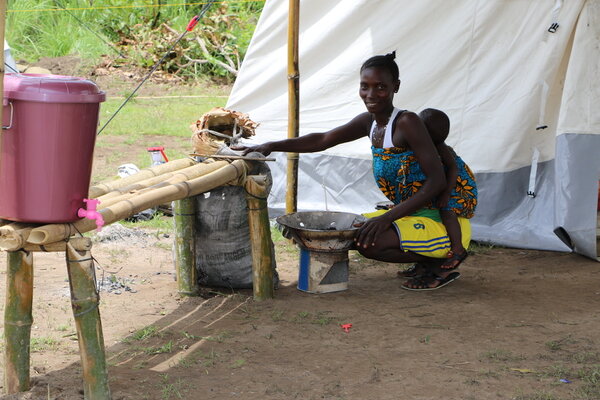
"Creaking health systems” are among the leading risks faced by the global community, according to the World Economic Forum’s Global Risks 2020 Report. People live longer, but health gains have also plateaued in recent decades. Threats from longstanding infections as well as those from emerging diseases pose a double set of challenges. (...) In an era of rapid technological advances, health systems are struggling to define who should pay for promising new treatments, and how much, when new gene and cell therapies can cost as much as US $2 million per patient. Like climate change, health risks pose an “expensive and expanding” transnational challenge.
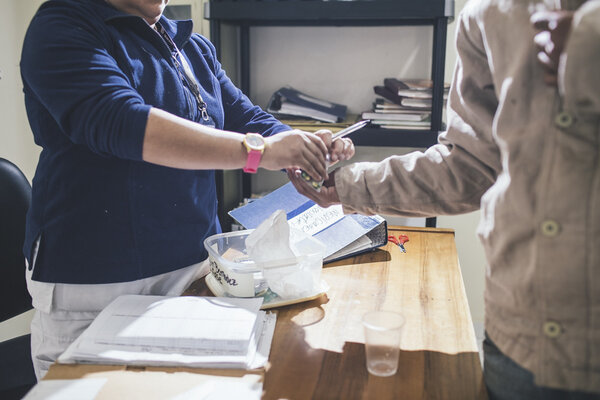
Die Weltgesundheitsorganisation (WHO) hat eine Liste mit Massnahmen erstellt, die weltweit zur Kontrolle von nichtübertragbaren Krankheiten (NCDs) empfohlen werden. Eine kürzlich durchgeführte Umfrage ergab jedoch eine unzureichende Nutzung dieser sog. Best Buy-Interventionen, insbesondere in Ländern mit niedrigem und mittlerem Einkommen (LMIC).

"Gesundheitsdaten können sehr viel wert sein, aber es kann auch grosser Schaden entstehen, wenn sie in falsche Hände geraten. Im Umfeld der Weltgesundheitsorganisation gibt es in Genf Bestrebungen, ein Datenzentrum mit globaler Reichweite zu schaffen. Wenn sich ein Krankheitserreger wie das Coronavirus über alle Grenzen hinweg rasch ausbreitet, ist es für nationale Gesundheitsbehörden sehr schwierig, rechtzeitig einen Überblick zu gewinnen. Wäre da der Zugriff auf eine konsolidierte Datenbank, wie sie vielleicht die Weltgesundheitsorganisation oder eine ihr nahestehende Institution betreiben könnte, nicht von unschätzbarem Wert?" (Foto: KamiPhuc/flickr, CC BY 2.0)
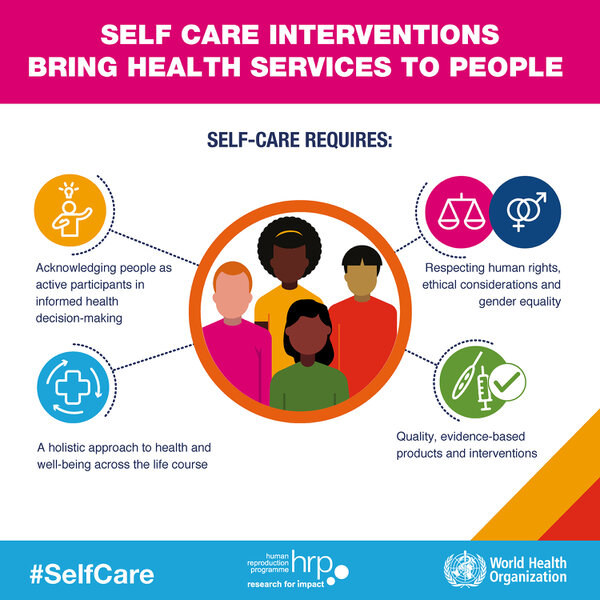
Die Möglichkeit der Durchführung eines anonymen HIV Selbst-Tests z.B. Zuhause, hat sich als grosse Chance erwiesen sowohl für diejenigen, die nicht die Möglichkeit haben, eine Klinik aufzusuchen als auch für Menschen, die sich vor Stigma fürchten. Neben dem HIV-Selbsttest gibt es bereits eine Reihe weiterer interessanter Interventionen zu Selbstbehandlung und -medikation vor allem im Bereich der sexuellen und reproduktiven Gesundheit. Welches Potential dies birgt, zum einen, damit Menschen mehr Verantwortung für ihre Gesundheit übernehmen können, aber auch auf dem Weg zu Universal Health Coverage (UHC), hat die Weltgesundheitsorganisation erstmals in einem Bericht dargelegt. (Graphik: © WHO)
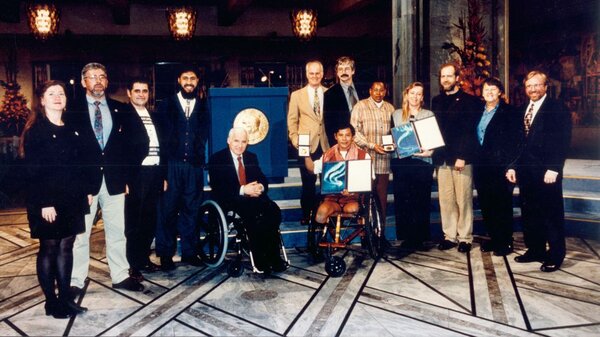
Die Trump-Administration hat heute einen tödlichen Wechsel in der Landminenpolitik angekündigt. Danach erklären sich die USA dazu bereit, den Einsatz und die Lagerung von Antipersonenminen wiederaufzunehmen. Landminen sind verheerende Waffen, die von ihren Opfern selbst ausgelöst werden und dabei nicht zwischen den Schritten eines Kindes oder eines Soldaten unterscheiden. (...) „Diese Massnahme ist ein Todesurteil für die Zivilbevölkerung", sagt Marco Kirschbaum, Leiter von Handicap International Schweiz (HI). (Foto: Die Internationale Kampagne gegen Landminen erhielt im Dezember 1997 den Friedensnobelpreis in Oslo | © ICBL)
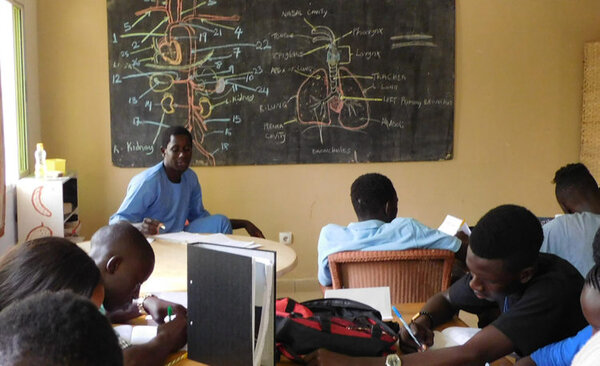
Newsletter von hmswiss - Januar 2020
Gambia ist das kleinste Land auf dem afrikanischen Kontinent und gleichzeitig eines der ärmsten Länder der Welt. Die Gesundheitsversorgung ist sehr dürftig. Den Spitälern und Gesundheitszentren mangelt es an personellen und materiellen Ressourcen. Alternativen sind gefragt – und da bietet sich die Homöopathie an. (...) Gabrielle Barben, Projektleiterin von hmswiss schreibt dazu im neuen Newsletter: Etwas Neues aufzubauen, um dadurch Autonomie und die Hilfe zur Selbsthilfe zu fördern – und das an einem fremden Ort, wo es kaum Alternativen zu einem dürftigen Gesundheitssystem gibt – diese Herausforderung reizt mich. Da keine Vorlagen bestehen, sind dabei immer wieder Kreativität und Pioniergeist gefragt. (Foto: hmswiss)
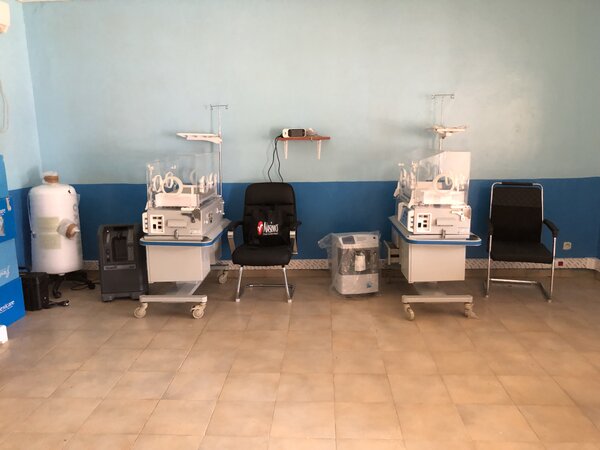
Am 5. Dezember konnten anlässlich einer offiziellen Eröffnung neue Räumlichkeiten bezogen werden für die einzige universitäre Neonatologie in Guinea. Dies ist ein wichtiger Schritt hin zu einer Reduktion der nach wie vor sehr hohen Neugeborenen-Sterblichkeit (32 pro 1000 Lebendgeburten). (Foto: souffle2vie)

Deadline for submission of Proposals: February 28th, 2020, at midnight, CET
ESTHER Switzerland is opening a new Call for Proposals. Via the provided link, on the Column on the right, you can find all relevant documents for the Proposals (full Grant or Start-Up), and the Guidelines. Should you have any questions, or in case you are considering to submit a proposal, please do get in touch with the ESTHER Switzerland Secretariat prior to submission: doerte.petit@ispm.unibe.ch
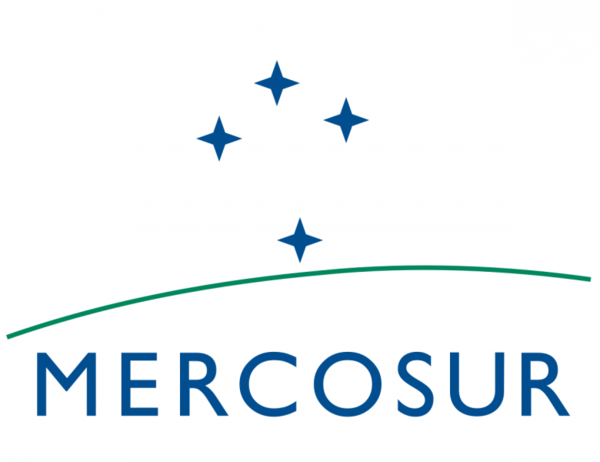
Medienmitteilung
Die Schweiz muss vor der Ratifizierung des Freihandelsabkommens mit dem Mercosur die Auswirkungen des Abkommens auf die Menschenrechte überprüfen. Alliance Sud zeigt, wie das methodisch gemacht werden kann. (...) Trotz der Empfehlungen der Geschäftsprüfungskommission des Nationalrats (GPK-N) weigert sich der Bundesrat, die Auswirkung des Freihandelsabkommens auf die nachhaltige Entwicklung und insbesondere die Menschenrechte zu prüfen, da es dafür keine adäquate Methodik gebe. Die GPK-N hat deshalb im vergangenen Jahr den Bundesrat in einem Postulat aufgefordert, eine Methodik zu entwickeln, was dieser akzeptiert hat. (Foto: Alliance Sud)

Medienmitteilung
Der Fall des ausgesetztes Babys in Därstetten/BE zeigt: Es gibt Lebenssituationen in der sich eine Frau gezwungen sieht, ihre Schwangerschaft und die Geburt vor ihrem Umfeld zu verbergen. In dieser prekären Lage ist sie auf Unterstützung angewiesen. Bei der vertraulichen Geburt kann die betroffene Frau unter einem Pseudonym im Spital gebären und die gesundheitlichen Dienstleistungen in Anspruch nehmen, die ihr und ihrem Kind zustehen. Damit sind die Frau und das Kind gesundheitlich versorgt und ihre Rechte bleiben gewahrt. Die vertrauliche Geburt ist wenig bekannt, wie SEXUELLE GESUNDHEIT Schweiz in einer Umfrage im Herbst 2019 herausfand. Das muss sich dringend ändern.